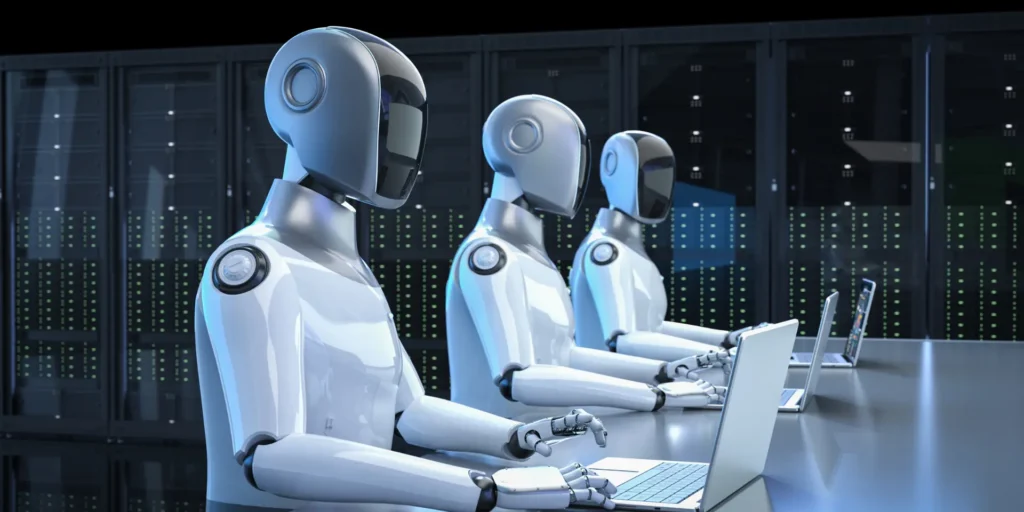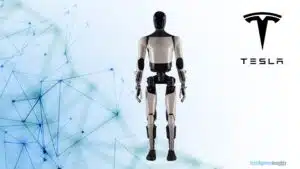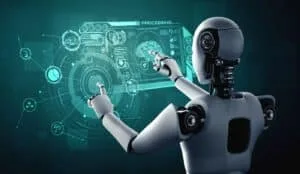Many of us have come across a news recently, “World Humanoid Robot Games 2025 held in Beijing, China, in August.” This is a first for the world, an Olympic-level competition for robots! But, it is definitely not going to be the last; the next Humanoid Robot Games is scheduled for August 2026.
Why the sudden popularity of robots? Robots are no longer just for entertainment in films; they are real and are becoming smarter by the day. The recent World Robotics report states that around 4 million robots are working in global industries, a 10% increase from last time. Most robotics development is seen in Asia, with 70% of new robots deployed in Asian countries, 17% in Europe, and 10% in the Americas.
Robots are now an integral part of global industries, like healthcare, agriculture, transport, defense, and others. From driverless cars to surgeries, robots are rapidly becoming a part of basic human needs. Now, who’s behind these smart ‘creatures’? The innovation of robotics companies is driving this transformation from manual labor to automated workflow.
We are going to discuss some of the best robotics companies of 2026, their aspects, and how they are leading the next generation of machines to impact humankind positively.
What is an AI Robotics Company?
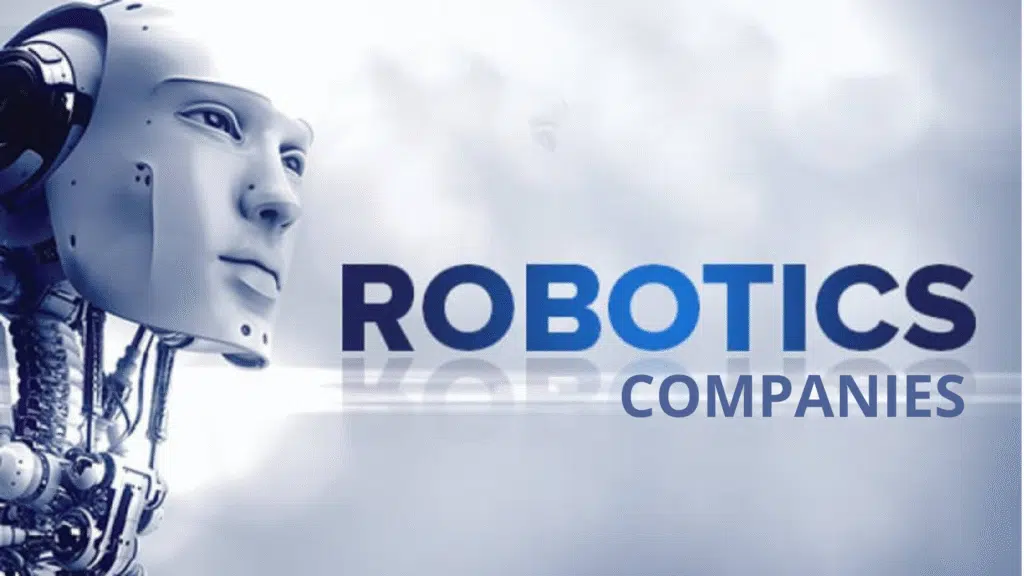
The company that develops and manufactures AI-powered robots for enhanced functionality and autonomy is an AI robotics company. They are different from traditional robot manufacturers, who do not produce robots that can handle complexities. AI robotics companies develop robots that learn from data, are AI-driven, adjust to altering conditions, and work with humans in an adaptive and real-time manner.
The international market for robotics is expected to increase from $71.78 billion in 2025 to $150.84 billion by 2030 with a CAGR of 16% during the aforesaid period. Top robotics manufacturers, like ABB from Switzerland and Epson from Japan, each hold 13% of the total market share. Japan is the market leader when it comes to robotics industry trends. The country is the home to half of the world’s top 10 robotics manufacturers, besides Epson, there are Fanuc with 11% market share, Kawasaki and Yaskawa both with 8%, and Denso holding 4% market share.
Also Read: RPA in Business: A 2025 Guide to Working Smarter, Not Harder
Quick Overview of Best Robotics Companies of 2026
| Company | Location | CEO | Top Product/s |
| Nvidia (NVDA) | California, USA | Jensen Huang | Jetson AI Robotics platform, GPUs |
| Tesla | Texas, USA | Elon Musk | Optimus, autonomous vehicles |
| Boston Dynamics | Massachusetts, USA | Robert Playter | Atlas, Spot |
| Intuitive Surgical (ISRG) | California, USA | Gary Guthart | Da Vinci Surgical System |
| ABB Robotics | Switzerland | Morten Wierod | Cobots (collaborative robots), industrial robots |
| Fanuc Corporation | Yamanashi, Japan | Kenji Yamaguchi | Robodrills, industrial robots |
| Kuka AG | Germany | Peter Mohnen | Cobots, industrial robots |
| iRobot Corporation | Massachusetts, USA | Colin Angle | Braava, Roomba |
| Universal Robots | Denmark | Kim Povlsen | Cobots |
| Blue River Technology | California, USA | Jahmy Hindman | Precision agriculture, See & Spray |
Top 10 Robotics Companies List
Nvidia (NVDA)
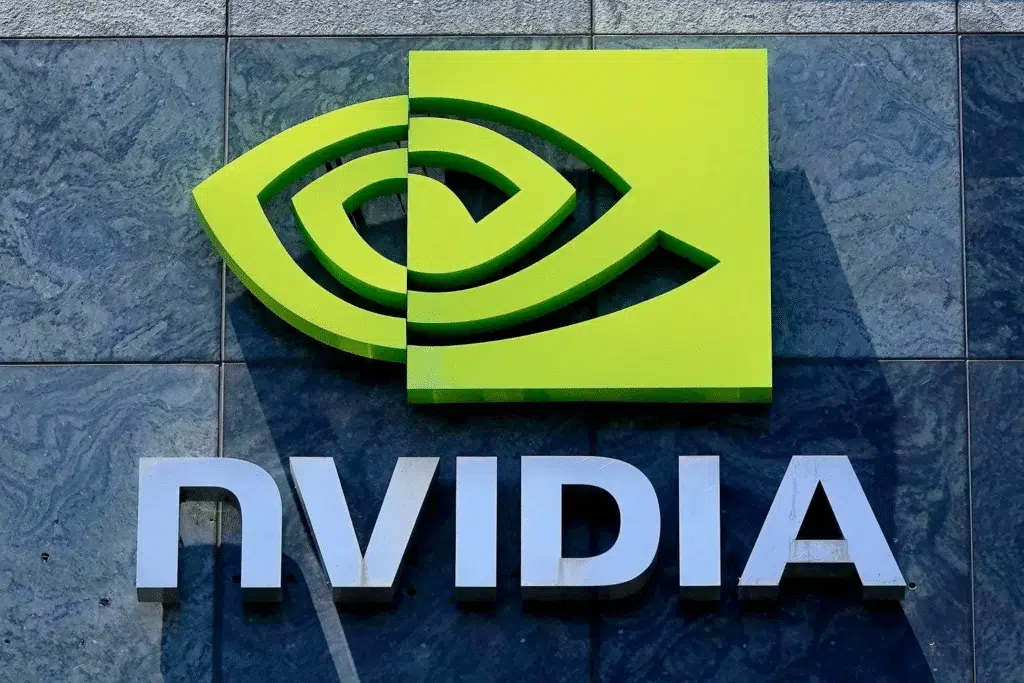
CEO: Jensen Huang
Location: Santa Clara, California
Nvidia has made its mark in the gaming industry, ruling the GPU market. But it has spread over different industries, like healthcare, autonomous vehicles, and manufacturing. According to Stock Analysis, the company is worth $4.16 trillion market cap in 2025.
Nvidia’s initiatives in robotics include the revolutionary Isaac platform, Groot Blueprint, and Three-Computer Solution. The Isaac platform is a complete suite of robotics development tools. It comprises Isaac GR00T, Isaac Sim, NVIDIA Omniverse, and Isaac Lab. The Groot Blueprint is a system to develop synthetic data for training robots. And the Three-Computer Solution is Nvidia’s way to power AI robots. In this case, Nvidia has competitors like Intel and Qualcomm, who are working on similar products, but can not compete with Nvidia’s AI expertise as of yet.
Nvidia’s Jetson AI Robotics Platform utilizes AI computing in drones, robotic arms, and autonomous cars. This platform trains robots to process real-time data that helps in making instant decisions.
Tesla
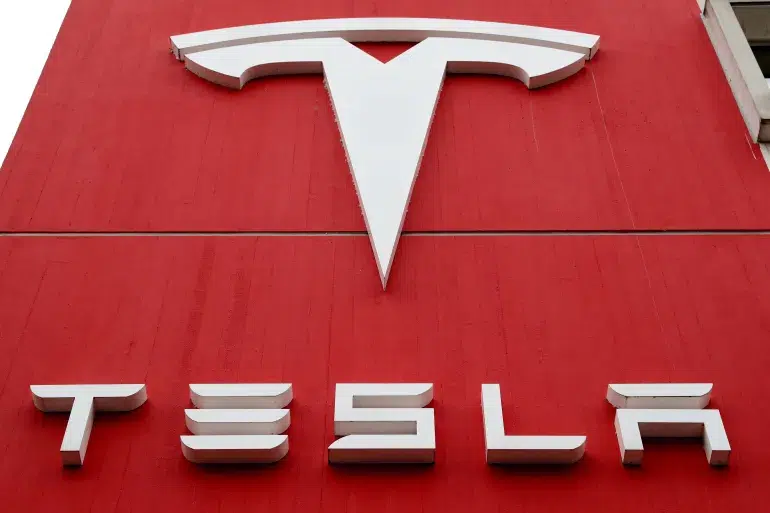
CEO: Elon Musk
Location: Austin, Texas
Tesla is known worldwide for its self-driving cars. Its influence in the electronic vehicle sector, along with extensive efforts in AI technology, consumer tech, and the logistics industry, is what makes it visionary in innovation of the future.
Tesla’s robotics innovation is Optimus, a humanoid robot that can walk on two legs. Elon Musk, Tesla CEO, presented the concept in 2021 and, on AI Day in 2022, unveiled the first prototype. Optimus was developed to manage repetitive tasks, like working in a factory or doing household chores, allowing humans to engage in the ‘thinking’ part. Musk introduced Optimus at Tesla’s 2024 We, Robot event, to interact with the audience. He said, “I think this will be the biggest product ever of any kind.”
Boston Dynamics

CEO: Robert Playter
Location: Waltham, Massachusetts
Boston Dynamics is known as the market leader in robotics. It has ‘Spot,’ a quadruped (dog-like) robot that can navigate in rough terrains, an engineering marvel. Thanks to its capabilities, Spot is used in challenging environments for inspection in industries like oil, gas, public safety, etc.
Boston Dynamics also has Atlas, its humanoid robot, which can perform striking tasks, such as parkour moves and back flips. It has revolutionary applications in construction and disaster response. The company’s robotic arm, Stretch, is used in automating warehouses to combat inefficiencies in the loading and unloading process.
Hyundai Motor Group acquired the company in 2021 for $1.1 billion. Today, the Hyundai Group holds about 80% of Boston Dynamics, and the remaining 20% is still with SoftBank.
Intuitive Surgical (ISRG)
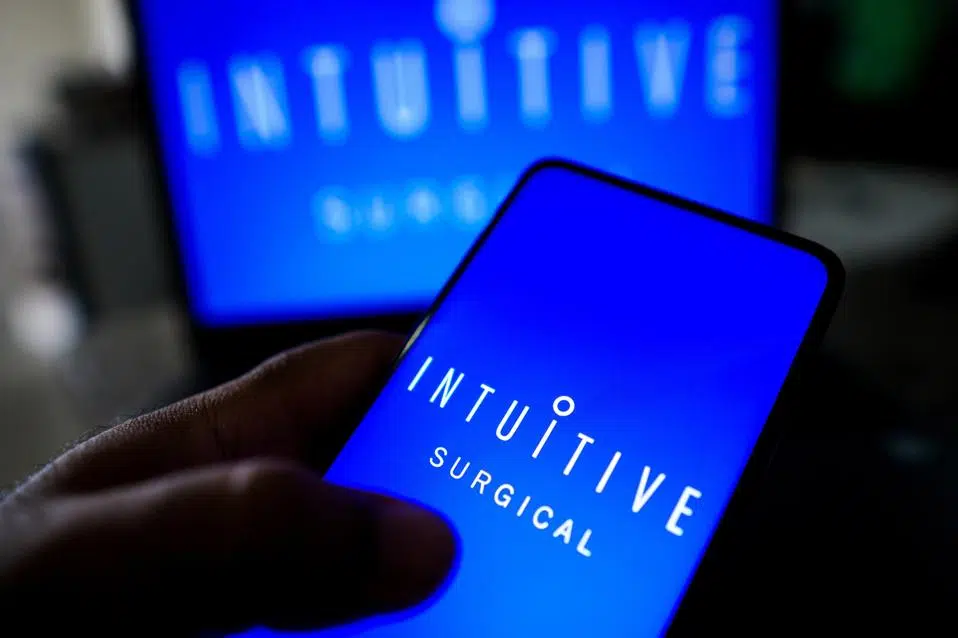
CEO: Gary Guthart
Location: Sunnyvale, California
Intuitive Surgical, as the name suggests, is known for its innovative work in healthcare robotics. Its flagship product, the Da Vinci Surgical System, is transforming surgeries in the healthcare industry. The future looks like this: a robotic arm assisting real surgeons in their work with unmatched precision.
For now, it has been working in minimally invasive surgeries in cardiology, gynecology, and urology. Surgeons use the robotic arm to carry out delicate procedures, in high definition and with a 3D view of the surgical area.
Though Da Vinci is still at the top, competitors like Johnson & Johnson are stepping up their game in this particular arena. It is a one-of-its-kind innovation; the Da Vinci arm can be quite costly for mass adoption, especially by smaller healthcare facilities. The company is now focusing on less expensive models, with scaled-down versions, and varied pricing.
As per Market Watch, Intuitive Surgical has a market cap of $156.23 billion as of 2025.
ABB Robotics

CEO: Morten Wierod
Location: Zurich, Switzerland
ABB Robotics has its stronghold on the logistics and manufacturing industries with its automation solutions. They design cobots or collaborative robots that work with humans to enhance operational and safety efficiency. Its industrial robots perform various tasks, like assembly, painting, etc., accurately and fast.
The company’s work in sustainability is also remarkable, especially their robots handling waste management in the recycling industry. Apart from cobots, the company also offers:
- Articulated robots (material handling, machine tending, etc.)
- Delta robots (picking & packing applications)
- SCARA robots (picking & packing, assembly, loading-unloading, etc.)
- Paint robots (automated interior & exterior painting, etc.)
- Palletizing robots (pallet handling in manufacturing and logistics)
With these innovative, automated solutions, ABB robots is the market leader when it comes to industrial automation with robotics.
Fanuc Corporation

CEO: Kenji Yamaguchi
Location: Yamanashi, Japan
Another big name in the industrial robotics sector, Fanuc Corporation, offers solutions that drive global manufacturing automation. It designs robots that can assist factories with welding, packaging, and assembly.
Fanuc’s CNC (Computer Numerical Control) systems integrate with robotic arms to generate efficient production setups. Its Robodrill, a vertical machining center (VMC) lineup, offers enhanced efficiency in electronics and automotive manufacturing.
Fanuc is a highly reliable name globally, which you can understand from their partnerships with major names, like BMW, General Motors, and Volvo Cars. It provides innovative automation solutions and industrial robots to enhance its partners’ productions.
Though many experts have pointed out their slow innovation compared to competitors, Fanuc, with its reliability and global scalability, is still the go-to company for big manufacturers.
Kuka AG
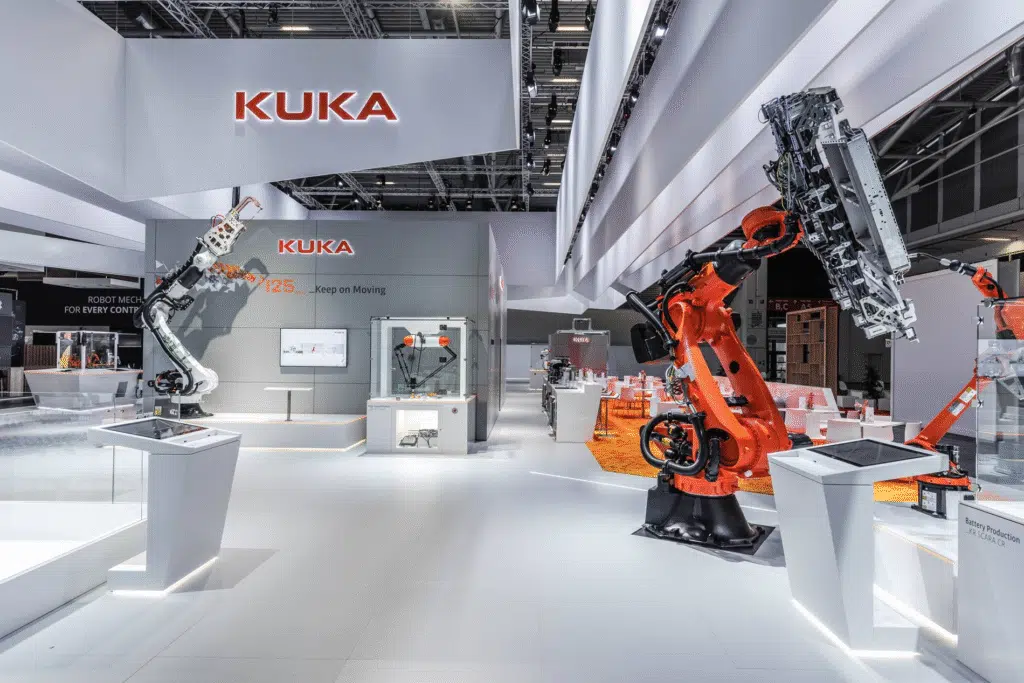
CEO: Peter Mohnen
Location: Augsburg, Germany
Kuka AG (KUKAF), a German automation company, offers robots for use in various industries for painting, material handling, and assembly. These robots are AI-driven and enhance the safety and efficiency in the automotive, aerospace, and healthcare industries.
Kuka also has their surgical robot, a robotic surgical assistant that can perform sensitive tasks in the healthcare sector. Their sole focus is precision, which is revolutionizing medical interventions and surgeries.
In the aerospace and automotive industries, Kuka has partnered with industry giants like BMW, Volkswagen, Boeing, and Airbus to drive automation in their production and manufacturing. It has a comprehensive robotics offering in various price points to benefit industries of all scales. Some of their offerings include:
- KR DELTA in Hygienic Design
- KR SCARA
- LBR iisy cobot
- KR 4 AGILUS
And many others.
What makes Kuka stand out from the competition is its innovation in cobots. They offer cobots that work directly with humans to make manufacturing automated, efficient, and flexible.
iRobot Corporation
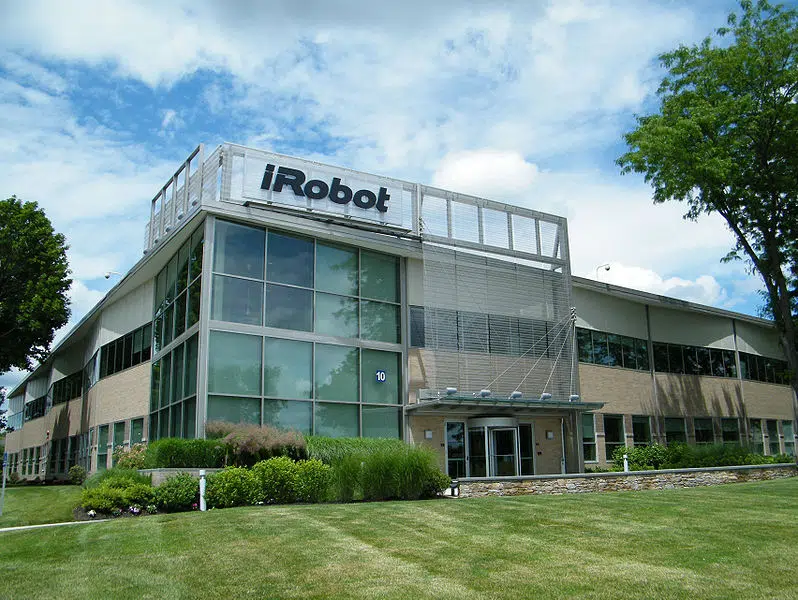
CEO: Colin Angle
Location: Bedford, Massachusetts
According to iRobot’s official website, it has sold over 50 million robots globally! That’s a staggering number, and you might be questioning how it has achieved it. Let me tell you, iRobot is the inventor of the Roomba robotic vacuum cleaner, a global sensation.
By merging AI and sensors, the company designs products that autonomously clean homes and adapt to various environments. The company is a popular name when it comes to home automation. Another hero product is the Braava robotic mop, priced between $449.99 and $499.99, which can be combined with Roomba to make your home shine brighter than ever.
Though competitors like Dyson are a big part of this particular market now, iRobot’s creations are still popular due to their user-friendliness and powerful software. The company is also looking to get into elder care and security robotics.
Also Read: AI in Jobs & Workplace – The Workplace Automation
Universal Robots

CEO: Kim Povlsen
Location: Odense, Denmark
Universal Robots specializes in designing cobots to work with humans and increase productivity and efficiency in medium and small-scale industries. Its robots are flexible, easy to maintain and program, and compact. This Danish robotics company offers automated solutions for varied tasks in palletizing, welding, machine tending, assembly, material handling, quality inspection, and many others.
It is most popular for its UR Series, which includes UR3e, UR5e, and UR10e cobots. Besides applications in manufacturing, Universal Robots also designs cobots to help with agriculture-related tasks, precision planting, crop monitoring, and offering sustainable farming solutions. Its work in robotics has redefined the versatility of the entire sector and changed people’s perception of robotics being inaccessible and expensive.
Blue River Technology
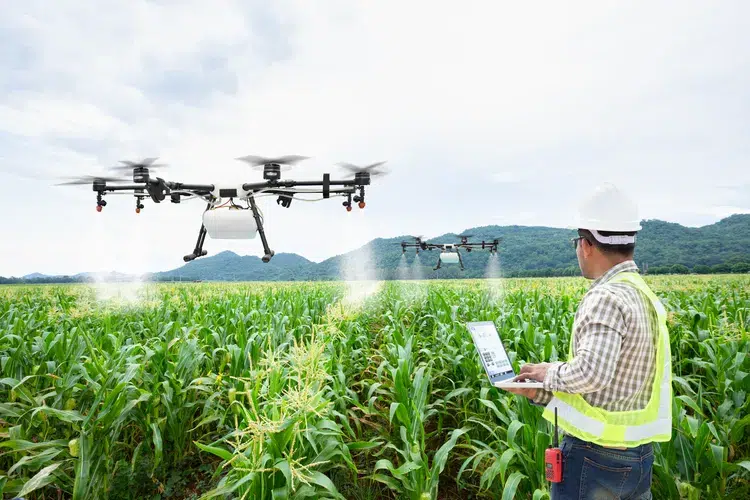
CEO: Jahmy Hindman
Location: Sunnyvale, California
On its website, Blue River Technology’s purpose states, “Solving monumental challenges for our customers.” The website also displays their aim to foster robotics innovation in the global agricultural sector – the building blocks of humanity. They innovate robots for crop management and resource waste reduction. It combines AI and computer vision in its See & Spray technology to determine weeds and treat them selectively, reducing the use of harmful pesticides.
Its motto is to create intelligent machinery to empower farmers and transform farming, as it is done today. In 2017, Blue River Technology was acquired by John Deere, a well-known manufacturer of agricultural, manufacturing, and forestry equipment. Though it is still an independently run subsidiary, this partnership opens new doors for Blue Rivers in terms of accessibility and support.
Upcoming Robotics Industry Trends
Robots have had quite the journey – from entertaining us on Hollywood screens to innovating our lives. The top 10 robotics manufacturers are working day and night to bridge the gap between imagination and execution in industries worldwide, from manufacturing, aerospace, to home cleaning and agriculture.
Some of the upcoming robotic trends include AI integration, expansion in Cobots’ features, betterment of humanoids, adoption of cloud robotics & Robots as a Service (RaaS) models, and introduction of Soft & Modular robots for enhanced flexibility, adaptability, and scalability.
With these incredible advances, human-robot interaction will be greater, more useful, and sustainable than ever before.
Related Read: What Is AI Companion? Its Features, Applications & Popular Examples
Also Read: AI in Cybersecurity: Benefits, Risks, and Future Outlook


